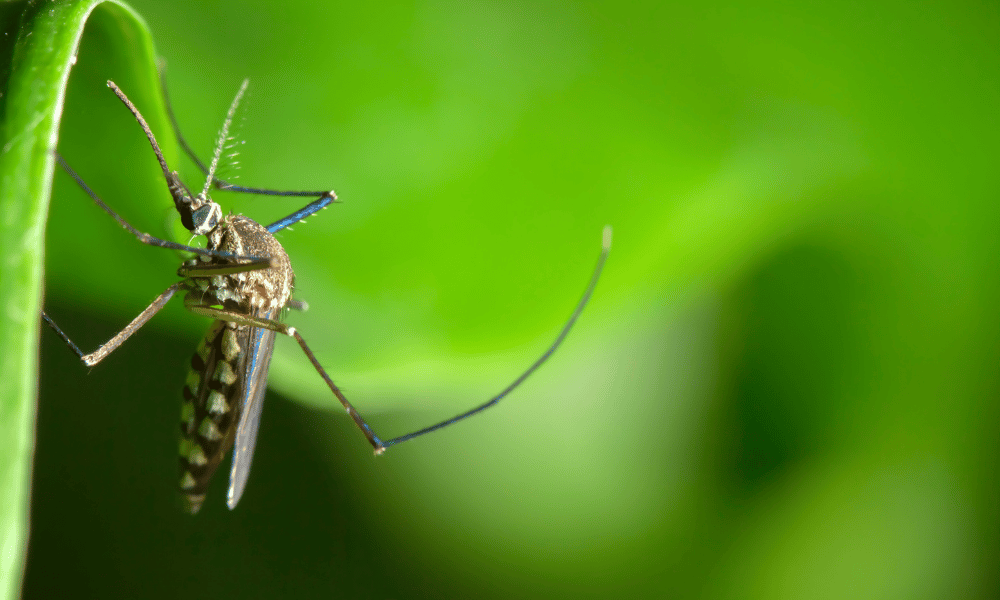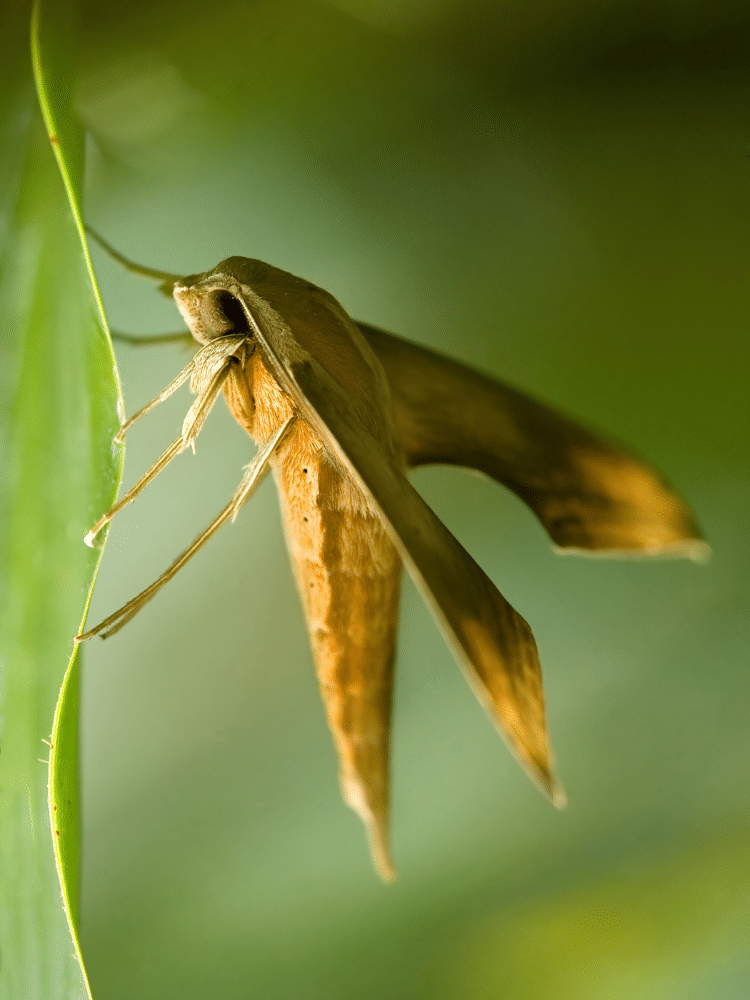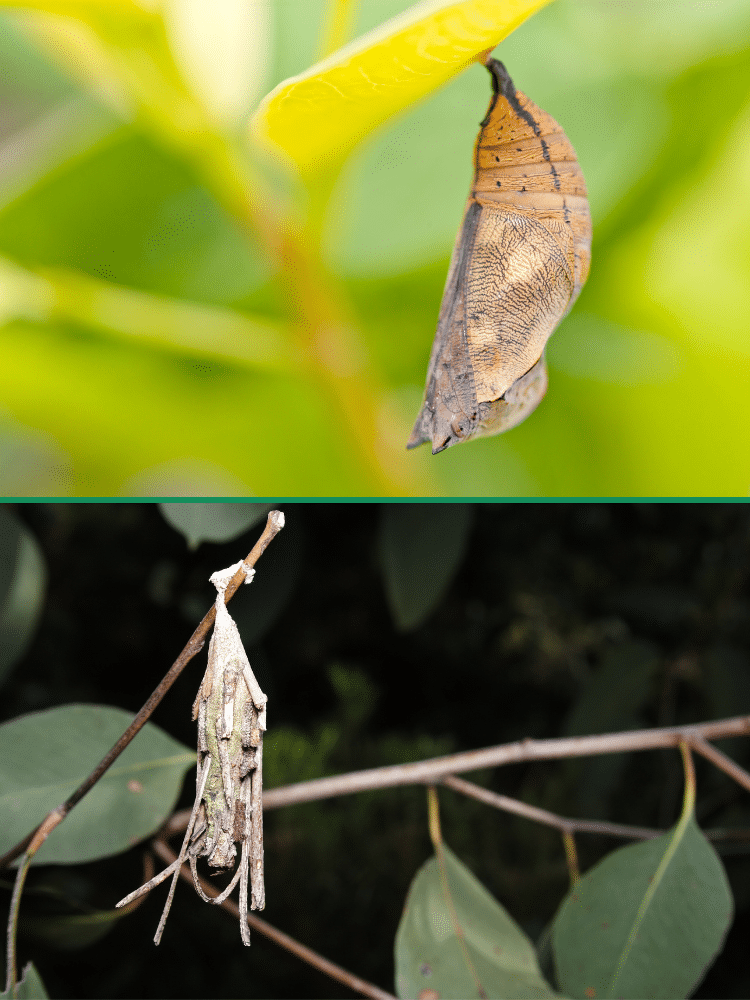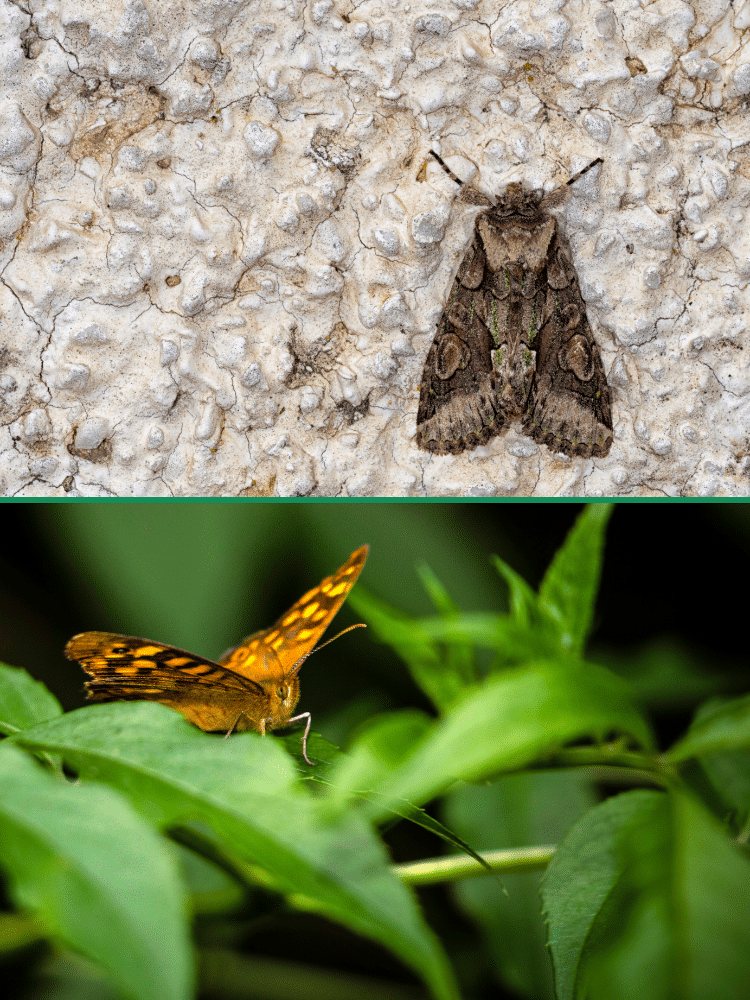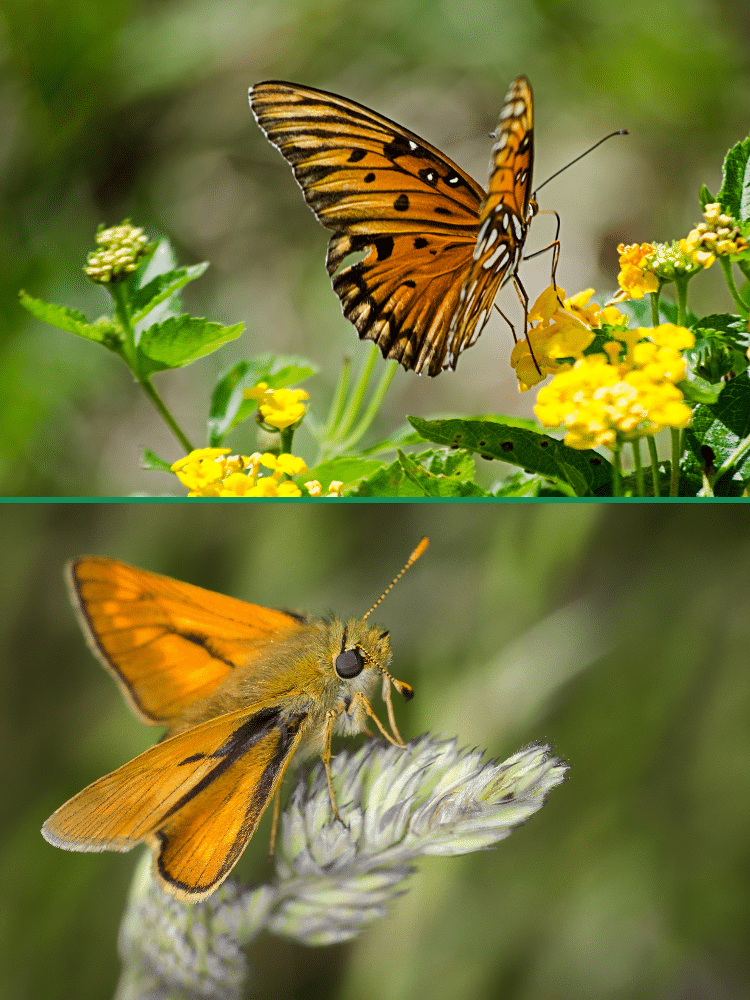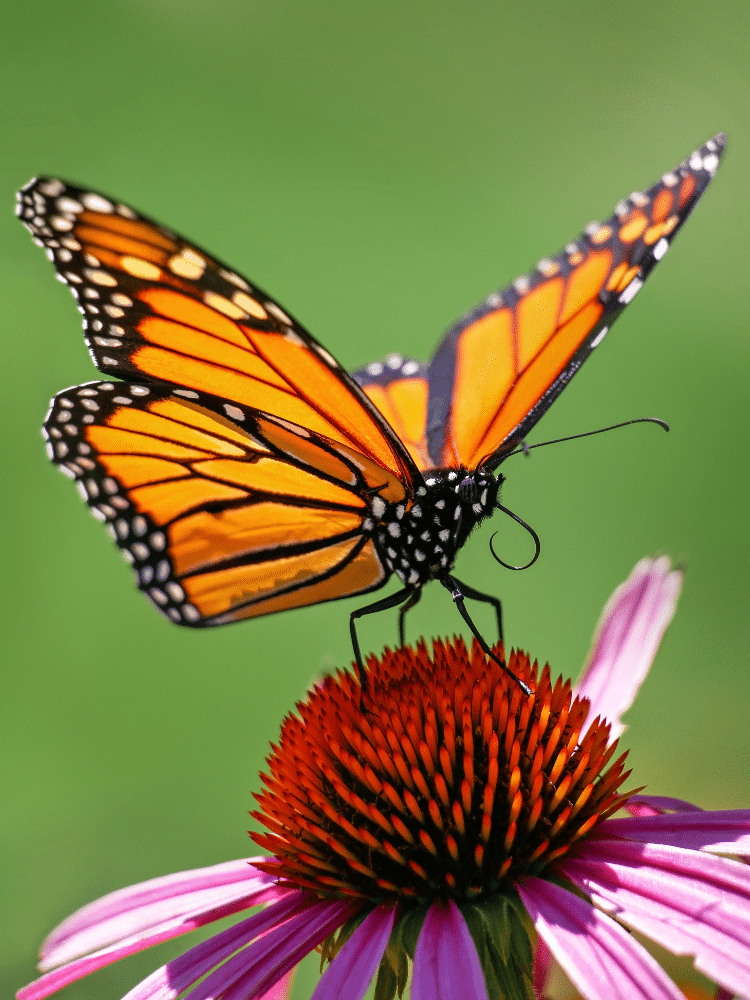Mosquitos are a nuisance and can ruin any evening outdoors. Lacewings are known to deter a range of pests and bugs so do lacewings eat mosquitoes too?
While lacewings are highly beneficial insects, they do not eat mosquitoes. Lacewings eat aphids, mites, whiteflies, mealybugs, leafhoppers, and thrips. They will also eat soft-bodied insects like caterpillars if they are available.
As for mosquitos, they do have a few natural enemies. Bats, possums, birds, fish, frogs, and turtles all consume this obnoxious insect from time to time, doing their part to make the outdoors a little more bearable.
What Else Eats Mosquitoes?
Mosquitoes are found all over the world and in different climates and regions. With over 3,500 different species worldwide, there are bound to be natural predators for these tiny insects.
Even with so many varieties, only a few types of mosquitoes actually spread any germs or diseases. However, even without the risk of illness, mosquitoes are still incredibly obnoxious.
Humans do not eat mosquitoes, but they do help keep their populations down.
Between mass spraying of yards and people, as well as growing plants that mosquitoes hate, it is relatively easy to prevent mosquitoes from bothering you. It is also essential to prevent places for them to breed.
Never leave stagnant water around. This includes droplets on larger leaved plants. Hostas are commonly grown in backyards but are known for harbouring mosquitoes. It is best to develop these far away from places where you will gather outdoors.
As for natural predators, bats, possums, birds, fish, frogs, and turtles all munch on these little annoyances as snacks.
Bats and possums are nocturnal, making mosquitos an excellent dinner option for these midnight snackers. Fish and frogs eat mosquitoes and their eggs near stagnant and slow-moving water in ponds and puddles.
Dragonflies are also known to frequent water bodies as well and eat mosquitoes. Just look at the photo below!
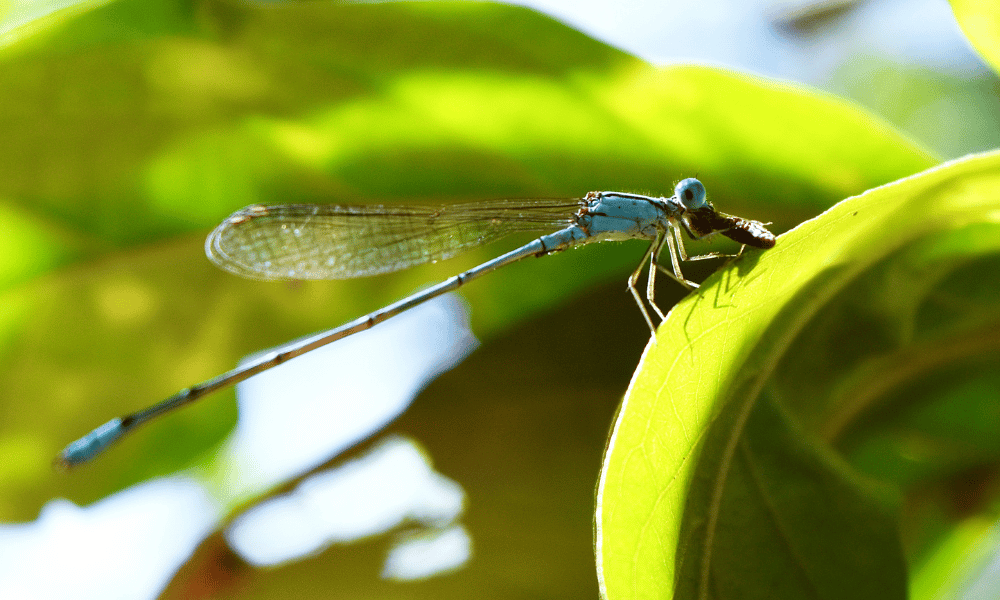
What Else Do Lacewings Eat?
When you are looking for a great alternative to chemical pesticides, many gardeners turn to use beneficial insects in their gardens.
Lacewings happen to be one of the most beneficial insects that you can use. These tiny creatures will devour thousands of aphids in their short-living larval phase.
In addition to aphids, lacewings will also make meals of other soft-bodied insects. The most common types of pests they eat include mites, juvenile whiteflies, thrips, and mealybugs.
They may even eat caterpillars if other food types are scarce. Like any animal or insect, they will choose readily available and easy-to-catch prey.
As adults, lacewings change their diets completely. At this point, they switch to consuming only pollen or nectar from plants.
While searching the flower for nectar and food, they will help the flower complete pollination. The process of pollination is essential and necessary for many flowers to reproduce.
During this process, the pollen from the male parts of the flowers will be moved into the female part of the flower by a pollinating insect.
In this case, the lacewings will move the pollen. Once the pollen has entered the female part of the flower, it will fertilize and become viable seeds for new plants to grow.
The Aphid Lions!
Lacewings are called “aphid lions” due to the number of aphids they will consume. Lacewings are the number one threat to aphids.
Summary
While lacewings are incredibly beneficial for pest control in your garden, they sadly do not help with mosquitoes. Lacewings will eat soft-bodied insects like mites, mealy worms, thrips, and sometimes even caterpillars, but they have no room in their diet for these bloodsucking creatures.
Instead, bats, possums, birds, fish, frogs, and turtles step up and help keep the mosquito population under control. Bats can grab mosquitoes in flight while possums can find them on dry land. Both of these creatures hunt for food at night when mosquitoes are abundant.


